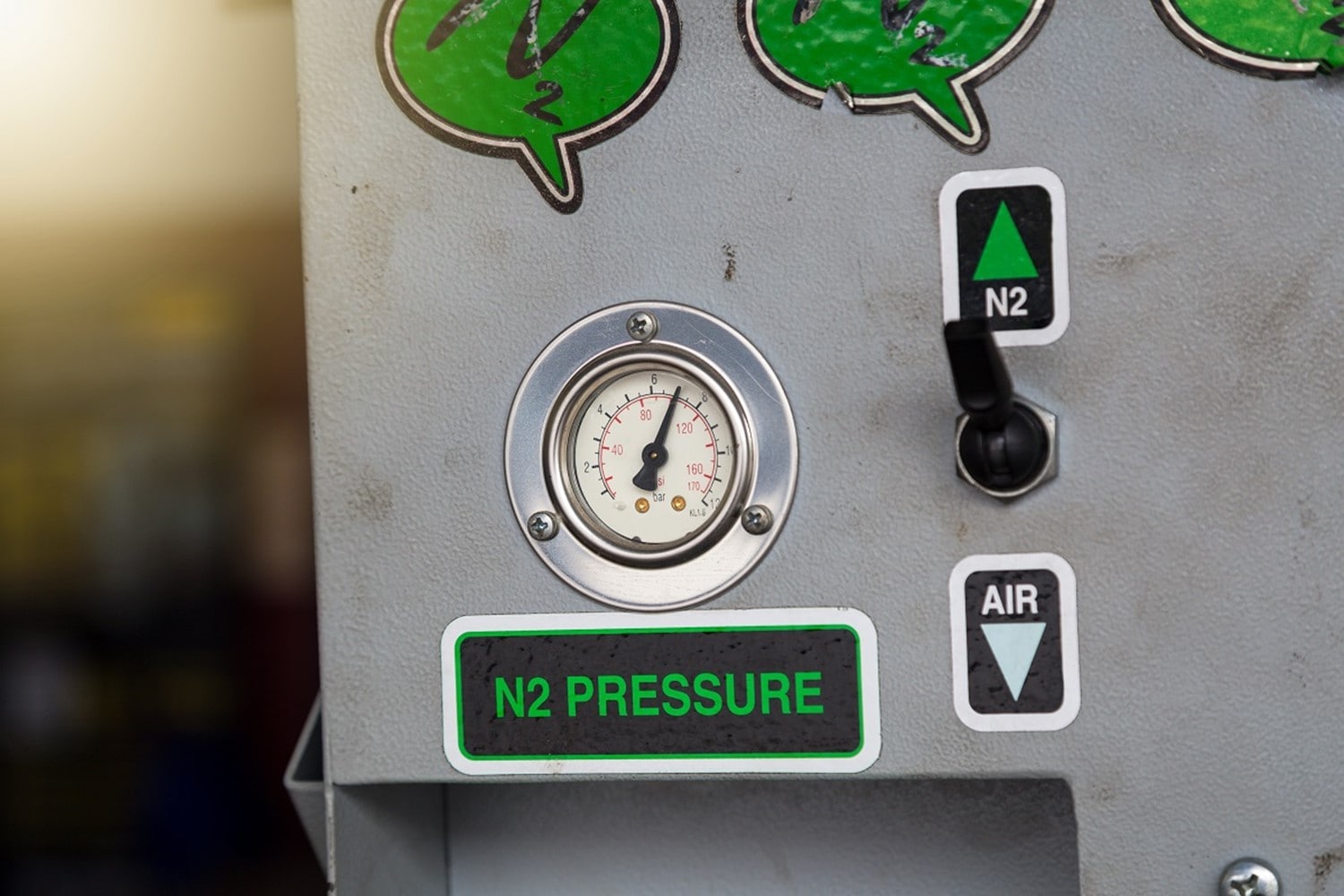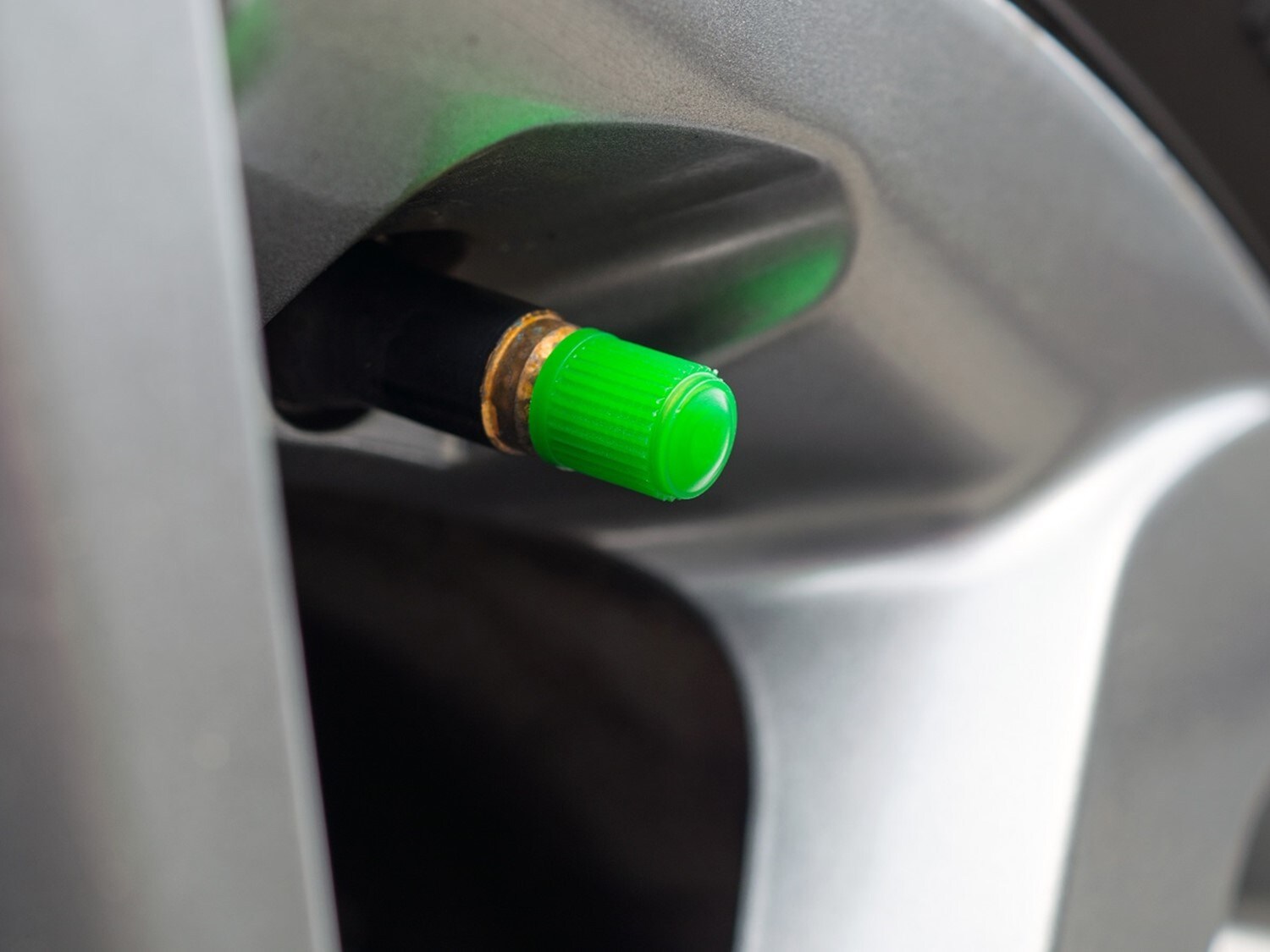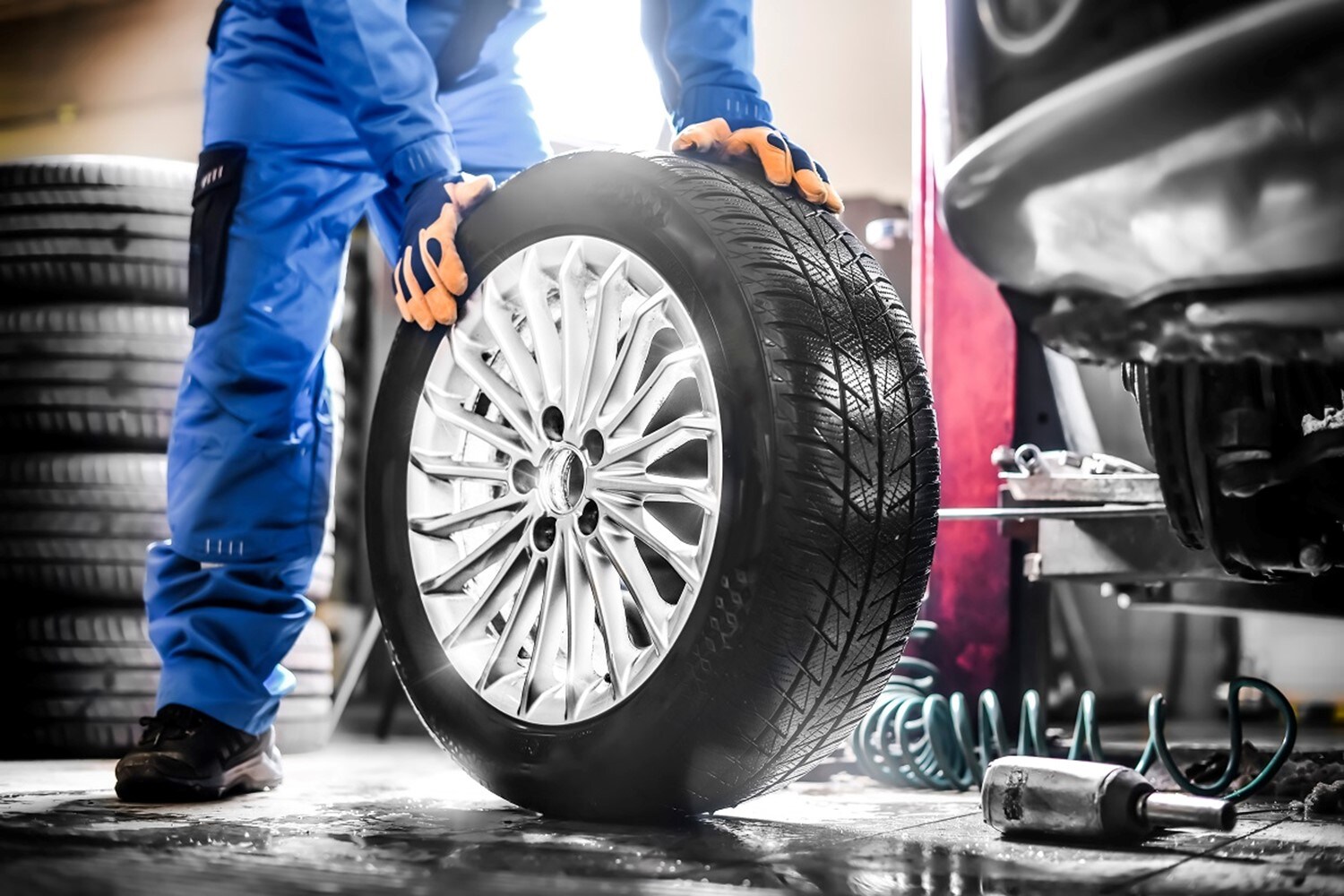
Major hype can oftentimes lead to major disappointment. France's 2008 Olympic 4x100m free relay team. Milli Vanilli. The 2007 Patriots. Star Wars: The Phantom Menace. (See?)
In the last decade or two, we've heard a lot of this sort of hype about nitrogen-filled tires being better than air. Some people stand firmly by those green caps on tires, while others think N2 tires are simply a sales gimmick.
The enthusiasts will say that, theoretically, science backs putting nitrogen in car tires. Tests performed by the NHTSA proved that, yes, there are certain benefits of nitrogen in tires. When compared to compressed air – which is approximately 78% nitrogen, 21% oxygen, and 1% other gases and water vapor – tires with N2 (90%+ nitrogen gas) retain more pressure/PSI over time and aren't as likely to suffer from premature failure caused by oxidation.
We don't live in a theoretical world, though. Opponents of N2 will say that the advantages of nitrogen in tires would be minimally noticeable to most drivers – instead of losing 3 PSI in winter, you might lose 2 PSI with nitrogen-filled tires, for instance – which makes the decision to go N2 a shaky one, at best.
So, which is it? Are nitrogen tires worth it or are they just a waste of time and money? Put on your safety goggles, because we're about to separate fact from fiction by using science and data.
Will nitrogen tires save me money?

To maximize your fuel economy and reduce your gas costs, you want to keep your tires properly inflated, especially if you experience elevation changes regularly. Unfortunately, due to inconvenience and a sense of complacency, perhaps, most car owners don't check or maintain their tire pressure monthly.
According to reports generated by several universities and institutions, nitrogen tire inflation can save anywhere from 1.9% to up to 7.4% in fuel costs when compared to compressed air. These savings are the result of nitrogen's molecular structure – they're larger than oxygen molecules – making it more difficult for this less-permeable gas to leak out of the tire. Scientists at Clemson even found that, given normal driving conditions, nitrogen-inflated tires maintain tire pressure up to 74% better than shop air.
The potential of compressed air lines inserting water vapor into tires can also contribute to pressure loss. With that added moisture, PSI changes will fluctuate more dramatically for every 10 degrees of temperature change. Nitrogen tires, which aren't supposed to have water vapor inside, will have a more consistent PSI, no matter the season.
For that reason, those green caps on tire valves can save you green.
Are nitrogen tires better for the environment?
In a study conducted by Bridgestone, data suggests that approximately 6% of cars in Europe operate with properly inflated tires. The other 93-94% of vehicles end up wasting over 2 billion gallons of fuel every year due to substandard gas mileage. If you extrapolate that data and apply it to all other large automotive markets, like North America and China, underinflated tires are a fairly sizeable contributor to climate change and pollution.Will nitrogen tires last longer?
Tire longevity is largely dependent on the following factors:- Interior deterioration due to oxidation
- Manufacturing defects
- Material
- Quality of road surfaces
- Exterior deterioration
Why? As we already noted, compressed air lines can push water/water vapor into tires. Water, when mixed with carbon dioxide, will cause corrosion, which absolutely loves to snack on rubber and metal (wheels and rims). If that corrosion eats through the rim, it will speed up and exacerbate tire pressure loss.
Some opponents of nitrogen tires will claim that this decreased tire longevity due to oxidation is unlikely to affect most tires, as they'll be replaced long before the thermo-oxidative process within their internal casing compromises the exterior.
Of course, the main advantage of having nitrogen tires is most realized in certain groups of auto aficionados: Luxury and import car owners. Because N2-filled tires are less prone to oxidation and corrosion, they're ideal for longer-term storage. If you own a garage to store your Bugatti Chiron, Divo and Veyron, for instance, you'll want to seriously consider putting nitrogen in their tires.
Should I get nitrogen race tires for my performance car?
In addition to cold storage, putting nitrogen in race car tires can have a huge impact on performance and handling.
Again, the difference between nitrogen and air in tires is molecular in nature. Because of nitrogen's natural characteristics as a dry and inert gas, it tends to be more consistent when temperatures drop or rise. On the racetrack, tires experience extreme temperature swings that cause inflation pressure changes and modify the tires' footprint (sidewall rolls, for instance). Those changes are perceptively more noticeable in air-filled tires than nitrogen tires.
When a half second matters, that additional 1 or 2 PSI can be the difference between first place and nada. However, for a normal daily commuter, this is a fringe benefit, at most.
Are nitrogen tires worth the extra cost?
While there are certainly advantages to choosing nitrogen vs. air tires, some people may wonder if those advantages are significant enough to warrant the extra expense associated with nitrogen tire caps.How much money can you save by having car tires filled with nitrogen? Get Nitrogen Institute offers a savings calculator online to help you figure that out. Suffice it to say, an average driver can potentially save approximately $100-150 per year in fuel costs and tire maintenance or replacement.
If you're the owner of a Bugatti or another type of hypercar, the cost to fill up with a nitrogen air pump is negligible. For everyone else, though, it's important to weigh the pros and cons as they relate to nitrogen refill costs, which can range from $0 to over $100 per tire, depending on your location and shop.
The Significance of Regular Tire Maintenance

Even with N2 tire caps, you should still perform monthly PSI checks! Proper tire inflation is nearly always more important than what type of air is in the tire itself, and keeping up with that type of tire maintenance can potentially save you just as much money as filling up with nitrogen.
Need tire service or new race car tires in Miami? Visit Braman Bugatti at 2060 Biscayne Blvd. We're here to help you order the best tires for your vehicle or perform routine maintenance, including tire rotations, wheel alignments and inspections. Contact our Bugatti service center at (786) 577-5216 to schedule an appointment today.